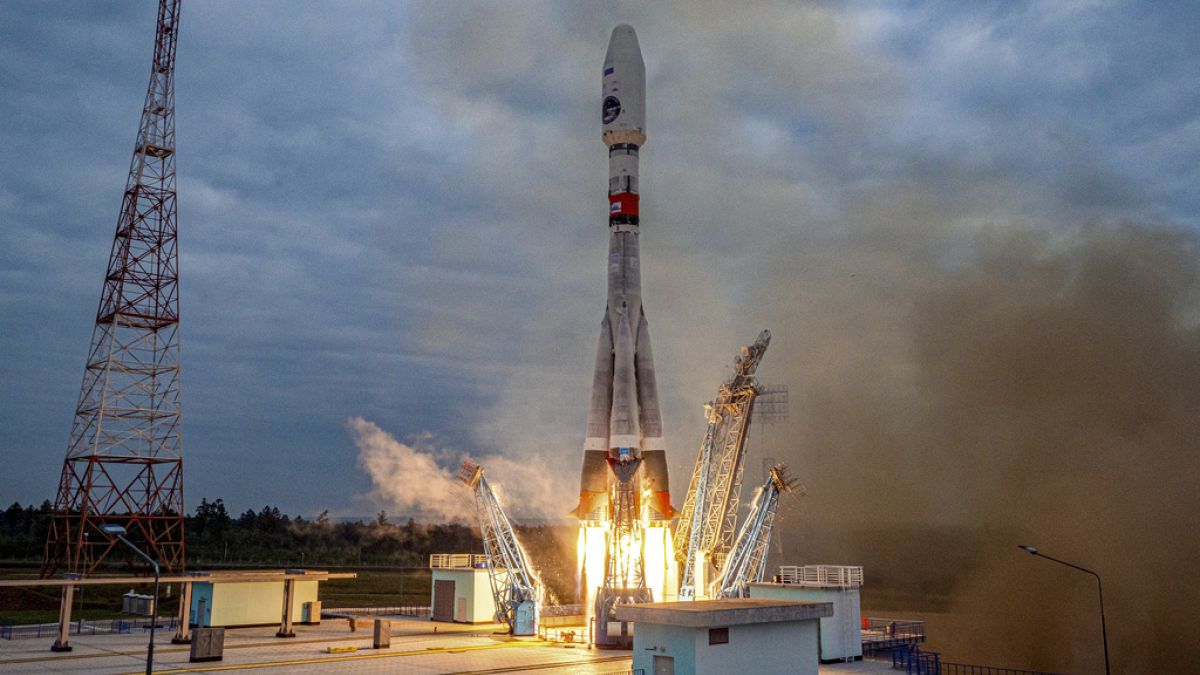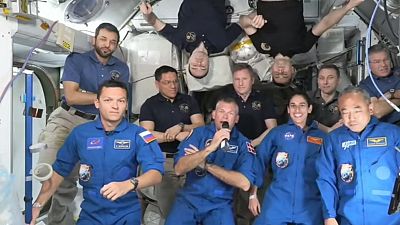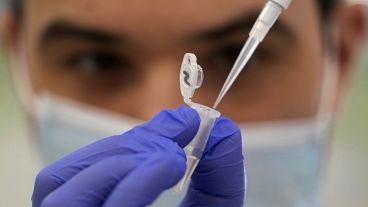Roscosmos said it lost contact with the spacecraft on Saturday after it ran into trouble while preparing for its pre-landing orbit of the Moon.
Russia's robot lander the Luna-25 spacecraft crashed into the moon after it had spun into uncontrolled orbit, the country’s space agency Roscosmos reported on Sunday.
"The apparatus moved into an unpredictable orbit and ceased to exist as a result of a collision with the surface of the Moon," read a statement from the agency.
Roscosmos said it lost contact with the spacecraft on Saturday after it ran into trouble while preparing for its pre-landing orbit after reporting an "abnormal situation" that its specialists were analysing.
The pilotless spacecraft was aiming to be the first ever to land on the south pole of the Moon, an area where scientists believe there could be important reserves of frozen water and precious elements. It had been expected to land on Monday.
Luna-25 was in a race with rival Indian spacecraft, Chandrayaan-3, to be the first to reach the south pole. Both were expected to reach the Moon between August 21 and 23.
"During the operation, an abnormal situation occurred on board the automatic station, which did not allow the manoeuvre to be performed with the specified parameters," Roscosmos said in a Telegram post.
'Luna-25 showed important progress'
Vitaly Egorov, a Russian space analyst, said despite the crash the mission had some successes.
"Luna 25 showed important progress. It flew toward the Moon, carried out orbit correction, and tested onboard electronics and scientific tools," he told the AP.
"It even managed to collect some small scientific data during the flight and from the lunar orbit. It also sent photos of the Moon. Russian cosmonautics was not at this level before. But then, an error occurred somehow".
The lunar mission was Russia’s first since 1976, when it was part of the Soviet Union. Only three governments have managed successful Moon landings: the Soviet Union, the United States, and China.
Roscosmos said it wanted to show Russia "is a state capable of delivering a payload to the Moon," and "ensure Russia’s guaranteed access to the moon’s surface".
Egorov said Roscosmos needs the experience of landing on the Moon.
"It will not be able to talk with China on equal terms, because China has already three successful landings on the moon, while Roscosmos has none," he said.
"Roscosmos will lag starkly behind the Chinese lunar programme".
Sanctions imposed on Russia since it began its actions in Ukraine have affected its space program, making it more difficult to access Western technology.
Luna-25 was initially meant to carry a small moon rover but that idea was abandoned to reduce the weight of the craft for improved reliability, analysts said.
The lunar south pole is of particular interest to scientists, who believe the permanently shadowed polar craters may contain water. The frozen water in the rocks could be transformed by future explorers into air and rocket fuel.



